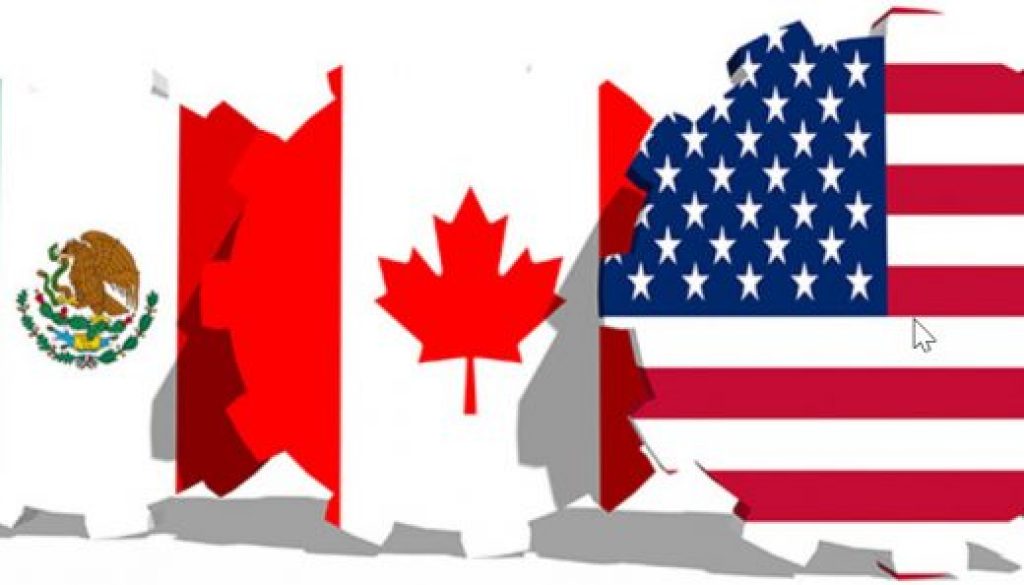NAFTA Negotiations Progress Report is Encouraging
NAFTA Negotiations Progress
There has been uncertainty surrounding the fate of the North American Free Trade Agreement. After Donald Trump had declared that he would reverse NAFTA, many feared that it would uproot years of a mutually beneficial free trade. However, he has said little about what changes he would make. This created doubt for those considering the possibility of doing business in Mexico, and those already doing business in Mexico. In this update on NAFTA Negotiations Progress, we will lay out evidence that is leading many to believe that NAFTA will remain substantially intact.
Trump and his administration are taking different approaches to the situation. While Trump’s language has been inflammatory, and his distaste for NAFTA obvious, his administration has been more cautious in their discussion of the pact. The more reasonable approach taken by the administration indicates that they may not abandon NAFTA as quickly as many have feared. Still, the government is divisive. Some are pushing for a protectionist route, while others are in favor of continuing free trade.
However, a protectionist stance would harm several critical U.S. industries, namely sugar and gas. The sugar industry is at the forefront of various trade issues between the U.S. and Mexico, but the repercussions of said issues will quickly spread into international trade markets. More importantly, the handling of sugar negotiations will set a precedent for the ongoing NAFTA negotiations and underscore the importance of keeping the pact together.
Ultimately, if sugar costs rise then it will have an adverse effect on jobs throughout the food industry. Manufacturers across the U.S. rely greatly upon sugar for their products, and companies that produce items like candy are already moving manufacturing to other countries to cut down costs. Both the U.S. and Mexico will benefit from an agreement that ensures a fair and prosperous life for the sugar industry. Farms across Mexico employ 450,000 workers during harvest season, and an increase in import taxes on sugar would cost thousands of Mexicans and Americans their jobs.
The natural gas industry is also very involved in these negotiations. American natural gas powers more than a quarter of Mexico’s electricity. NAFTA has given American energy companies a chance to thrive, especially in Texas where the panic over NAFTA changes is increasing. It will be unfavorable for both sides if the negotiations go poorly, ending in a disastrous energy shortage for Mexico and a significant loss of income for American companies. Mexico has already begun searching for alternative power sources in case the agreement falls through, and their current sources are cut off.
However, oil and gas producers in Texas would be the first to fight back in the extreme case of a trade war. The production of natural gas in the U.S. surpasses the demand, which means that gas prices would collapse if Mexico, one of their largest customers, is lost. Likewise, natural gas is a vital resource for Mexico. It generates electricity for their major cities and provides power to citizens and industries alike. For these reasons, the natural gas trade between Mexico and the U.S. is crucial and should continue without restriction for the success of both countries.
Canada is also an important trading partner involved in these matters. They import dairy products and softwood lumber, among other resources, into the U.S. Prime Minister Justin Trudeau of Canada stands firm that Canada does not need a “Plan B.” He has expressed that he does not believe the pact will fall through because of the economic benefits that it provides to the United States.
Overall, this NAFTA Negotiations Progress Report suggests that there is more reason to support the continuation of free trade throughout North America than there is to oppose it. The United States would suffer considerably without the current pact. America would lose credibility with other trade nations, as well as valuable opportunities and resources brought in from other North American countries. In all likelihood, the North American Free Trade Agreement will not undergo significant changes any time soon because of the incredible benefits it affords for companies in Mexico and the U.S.
For additional information on NAFTA Negotiations Progress and other subjects of interest to manufacturing companies we encourage a regular reading of our blogs at http://tecma.com





